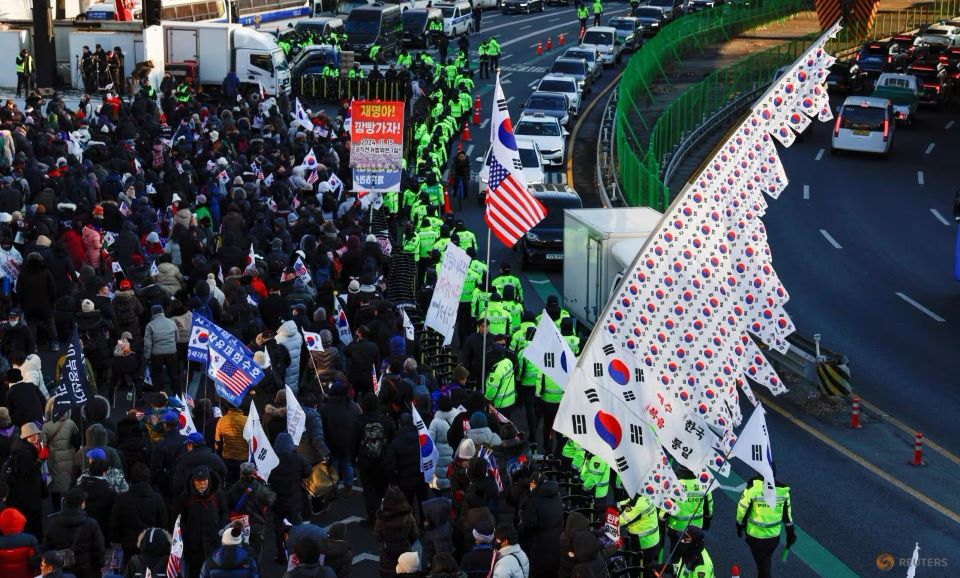The RM9.20 billion (US$2.055 billion) scandal now gripping Malaysian taxpayers over littoral combat ships that have never been delivered 11 years after the original contract was signed is nothing new for a government led by the United Malays National Organization.
The party, the country’s biggest, which has led Malaysia for almost all of its 60-plus years, has lived off of defense ministry contracts as cash cows almost for its entire existence, much of that time under former defense minister (1990-1995) and prime minister (2009-2018) Najib Razak, whose tenure in other cabinet posts as well was marked by rapacious raids on the treasury.
The LCS contract was signed while Najib was prime minister. But even before Najib’s time, in the 1980s, news reports detailed bribes for the purchase of tanks, wheeled armored vehicles, and other equipment whose prices were swollen by graft and whose quality was substandard at best. And for that, according to defense analysts, Malaysia got a military that couldn’t get out of its own tracks. Malaysia has been visited by so many scandals that Wikipedia maintains an exhaustive list that can be found here, ranging into the billions of dollars.
Najib is now in the dock and, barring an extraordinary black swan event, likely to go to prison after being sentenced to 12 years for his part in looting the government-backed 1Malaysia Development Bhd investment fund, which collapsed in 2016 in a welter of mismanagement and corruption that cost the taxpayers the equivalent of US$5.4 billion and sent people to jail – not Najib yet – in the United States and Singapore.
But Najib, who faces a long list of other trials relating to 1MDB, seems ignored not only in the littoral ship scandal but others traceable directly to him and that involved not only allegations of international money laundering and bribery but murder. In fact, the government may well have lost as much of the taxpayers’ money through defense graft, much of it perpetrated by him, as through 1MDB.
The first and most spectacular, prior to the littoral combat ships, was the US$1.2 billion purchase of Scorpene submarines from a subsidiary of the French munitions maker DCN that is now being adjudicated in a Paris court that allegedly involved US$141 million in kickbacks delivered to UMNO with the full knowledge of then Prime Minister Mahathir Mohamad, who has escaped all scrutiny. A series of prize-winning Asia Sentinel articles in 2012 described the affair.
The contract to buy the submarines, which have seen little service because they can’t operate in peninsular Malaysia’s shallow waters, was marred by allegations not only of money laundering and kickbacks but of murder, of a jet-setting 28-year-old Mongolian party girl named Altantuya Shaariibuu who, according to records, had served as a translator in the purchase of the vessels. Altantuya was said by a private detective in a sworn statement to have been the girlfriend of both Najib and his close friend, defense analyst Abdul Razak Baginda, who played a role in obtaining the contract.
Two of Najib’s bodyguards, who were convicted of the murder, signed statements saying Najib had ordered them to kill the woman because she was a spy. She had been demanding US$500,000 from Razak Baginda – which she described in a letter as blackmail – when she was shot in the head in a patch of forest in 2006 near the suburb of Shah Alam. The two blew up her body with C4, possibly to hide the fact that she was pregnant.
Following a report that a French court has charged defense manufacturer Thales with complicity in bribery over the purchase of the vessels in 2002. Opposition leader Anwar Ibrahim in April asked whether Malaysians allegedly involved in the bribery scandal linked to the procurement of submarines from France would be brought to justice. There seems little appetite to do so.
As Asia Sentinel reported in 2018, three other separate contracts stand out. All three, approved under Najib, have been widely cited by the opposition. Opposition and defense figures told Asia Sentinel in 2007 that the three, one for Russian Sukhoi jet fighters, a second for the French submarines and a third for navy patrol boats, appear to have produced millions for UMNO cronies, Najib’s friends and others – and Najib himself. The “commission” for defense purchases across Southeast Asia was estimated to range from 10 to 20 percent by Foreign Policy in Focus, a think tank supported by the Institute for Policy Studies in Washington, DC.
In 2007, then opposition DAP leader Lim Kit Siang pointed out that the 18 Sukhois had cost US$50 million each for the same plane models that Vietnam purchased for US$25 million each, while the Indian Air Force had paid US$40 million. “That is US$10 million more (per plane) compared to India, so times 18, you get US$180 million or about RM600 million entering someone’s pocket. But if you compare it with the price paid by the Vietnamese government, it would be a cool RM1.8 billion (US$460.8 million at current exchange rates). I wonder whose pocket is that?” Lim asked.
The question has never been answered.
The second case was detailed by Malaysia’s Auditor General in a report that alleged that a contract to build naval vessels given to PSC-Naval Dockyard, a subsidiary of Penang Shipbuilding & Construction Sdn Bhd, which was owned by another UMNO crony, Amin Shah Omar Shah, was hopelessly botched. It involved PSC-Naval Dockyard, which was contracted to deliver six patrol boats for the Malaysian Navy in 2004 and complete the delivery in 2007. They were supposed to be the first of 27 offshore vessels ultimately to cost RM24 billion plus the right to maintain and repair all of the country’s naval craft.
But only two of the barely operational patrol boats had been delivered by mid-2006. There were 298 recorded complaints about the two boats, which were also found to have 100 and 383 uncompleted items aboard them respectively. The original RM5.35 billion contract ballooned to RM6.75 billion by January 2007. The auditor also reported that the ministry had paid out RM4.26 billion to PSC up to December 2006 although only Rm2.87 billion of work had been done, an overpayment of Rm1.39 billion, or 48 percent.
In addition, Malaysia’s cabinet waived late penalties of RM214 million. According to the Auditor General, 14 “progress payments” amounting to RM943 million despite the fact that the auditor general could find no payment vouchers or relevant documents dealing with the payments.
The auditor general attributed the failure to serious financial mismanagement and technical incompetence stemming from the fact that PSC had never built anything but trawlers or police boats before being given the contract. Once called “Malaysia’s Onassis” by former finance minister Daim Zainuddin, Amin Shah was in trouble almost from the start, according to a report in Singapore’s Business Times in 2005. The financial crisis of 1997-1998 meant he was desperate to find funds to shore up ancillary businesses, Business times reported. After a flock of lawsuits, the government ultimately cut off funding in 2004 amid losses and a net liabilities position. Boustead Holdings effectively took control from Amin Shah, reducing him to non-executive chairman.
In 2008, opposition leaders complained in Parliament that Najib’s defense ministry had vastly overspent on 12 Eurocopter Super Cougar EC727 helicopters to replace their 40-year-old helicopter fleet. Brazil paid only RM84 million for the same helicopters bought by Malaysia for RM141 million. Opposition leaders alleged that the aircraft weren’t shortlisted before they were purchased and that the price had zoomed, nor did the air force test-fly the craft. A demand for the parliament’s Public Accounts Committee to investigate the purchases resulted in a full exoneration of the deal, as every other single scandal ended.












.jpg&h=630&w=1200&q=100&v=5f99a4b43f&c=1)








Discussion about this post